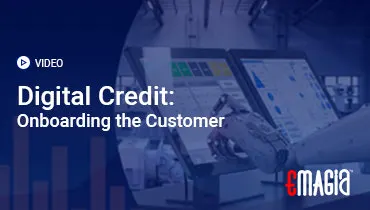In today’s digital era, Generative AI in e-Invoice Processing is emerging as a transformative force in financial operations. By leveraging powerful AI algorithms, organizations can streamline invoice automation, reduce errors, enhance compliance, and improve operational efficiency. This guide will explore how Generative AI reshapes accounts payable and drives digital transformation.
Understanding Generative AI and Its Role in e-Invoice Processing
Defining Generative AI
Generative AI (GenAI) refers to artificial intelligence systems capable of generating content, understanding complex data structures, and performing human-like reasoning. In the context of finance, GenAI enables automation of processes such as data extraction, document analysis, and decision-making for e-invoices.
Evolution of e-Invoice Processing
e-Invoicing has evolved from manual data entry to automated processes that integrate seamlessly with enterprise resource planning (ERP) systems. The introduction of AI-driven automation is the next step in this evolution, enabling faster, more accurate processing without human intervention.
The Intersection of AI and Finance
The adoption of AI in finance — often termed FinOps — is revolutionizing traditional practices. Generative AI’s ability to process unstructured data, recognize patterns, and make predictions positions it as a game-changer for accounts payable, accounts receivable, and broader financial operations.
Core Technologies Powering AI-Driven Invoice Processing
Machine Learning and Natural Language Processing
Machine Learning (ML) algorithms allow systems to learn from historical data, improving forecasting and process efficiency over time. Natural Language Processing (NLP) enables machines to interpret and understand human language, critical for handling diverse invoice formats and complex financial data.
Optical Character Recognition and Computer Vision
OCR and Computer Vision technologies allow AI systems to accurately read and process invoices from scanned documents or digital files, enabling automation of data extraction without manual input.
Large Language Models (LLMs) in Financial Automation
LLMs are advanced AI models that understand context and meaning in human language. They empower GenAI systems to interpret invoice data more intelligently, adapt to different formats, and improve accuracy in processing.
The Impact of Generative AI on Financial Operations
Efficiency and Time Savings
By automating repetitive tasks, Generative AI reduces the time taken to process invoices, enabling teams to focus on value-driven activities rather than manual data entry.
Enhanced Accuracy and Error Reduction
AI minimizes human errors by validating data and identifying discrepancies automatically, ensuring greater accuracy in invoice processing.
Cost Reduction and Cash Flow Management
By accelerating processing and reducing errors, businesses can significantly lower costs. Real-time insights into payable and receivable cash flows enhance liquidity management and financial planning.
Key Challenges in Implementing Generative AI for e-Invoice Processing
Integration with Existing Systems
Integrating GenAI with ERP systems, APIs, and other enterprise software can be complex, requiring careful planning and execution.
Data Quality and Unstructured Data
GenAI systems rely on high-quality data. Poor data quality or inconsistent invoice formats can hinder performance unless addressed with robust data validation and intelligent document processing solutions.
Change Management and Adoption
Introducing Generative AI requires significant change management, including training teams, aligning processes, and ensuring stakeholder buy-in.
Real-World Applications of Generative AI in Invoice Automation
Automating Accounts Payable with GenAI
Accounts payable (AP) automation powered by Generative AI transforms manual invoice processing into a streamlined, intelligent workflow. This reduces processing time, eliminates human error, and ensures consistent compliance with regulatory standards.
By using AI-driven data extraction and intelligent matching, AP teams can process high volumes of invoices with minimal human intervention, freeing resources for strategic tasks such as vendor negotiation and cash flow optimization.
Invoice-to-Cash (I2C) Automation
Generative AI also impacts accounts receivable (AR) processes, where invoice-to-cash cycles can be automated. Intelligent systems can generate invoices, validate data, and match payments to open invoices, improving cash flow visibility and accelerating revenue recognition.
Intelligent Document Processing (IDP) in e-Invoicing
Understanding Intelligent Document Processing
IDP combines AI, ML, NLP, OCR, and computer vision to automatically extract and process data from invoices and other financial documents. It eliminates manual entry and ensures accurate, consistent results even with unstructured or varying document formats.
Key Benefits of IDP
- Template-free Extraction: Process invoices without predefined templates, allowing flexibility across multiple vendors.
- Line-item Matching: Automated matching of invoice line items to purchase orders for accuracy and compliance.
- Data Validation and Reconciliation: Ensure data accuracy by cross-referencing invoices against internal records and ERP systems.
Automated Workflow and Approval Routing
Streamlining Approval Processes
Generative AI enables intelligent routing of invoices for approval based on predefined business rules. Automated workflows accelerate approval times, reduce bottlenecks, and improve operational efficiency.
Exception Handling and Touchless Processing
AI detects anomalies, mismatches, or missing data in invoices, automatically flagging them for review. This ensures that the majority of invoices are processed in a touchless manner, with exceptions handled efficiently.
Integration with ERP Systems
GenAI platforms integrate seamlessly with ERP systems like SAP and Oracle via API connectors. This enables end-to-end automation from invoice receipt to payment, improving traceability and compliance.
Fraud Detection and Compliance Assurance with AI
Identifying and Preventing Fraudulent Activities
Generative AI applies predictive analytics and pattern recognition to detect potential fraud in invoice processing. It can flag suspicious activities such as duplicate payments, altered invoices, or suspicious vendor patterns.
Ensuring Regulatory Compliance
AI systems can automatically verify invoices against regulatory requirements for different regions and industries. This reduces compliance risks and streamlines audits.
Risk Mitigation Strategies
By leveraging AI-powered fraud detection and compliance checks, organizations minimize financial and reputational risks while improving operational integrity.
Enhancing Vendor Relations and Customer Experience
Improving Communication and Transparency
Generative AI platforms enhance vendor relationships by providing clear, transparent, and real-time updates on invoice status. Vendors can track payments and resolve disputes more efficiently.
Accelerating Payment Cycles
Touchless processing and automated workflows shorten invoice cycles, enabling faster vendor payments and improving supplier trust.
Building Stronger Supplier Partnerships
With accurate processing and consistent communication, organizations foster stronger supplier partnerships, which can lead to better payment terms and improved collaboration.
The Future of e-Invoice Processing: Trends and Innovations
Predictive Analytics in Invoice Automation
Generative AI is transforming invoice processing from a reactive to a proactive function. Predictive analytics enables finance teams to forecast cash flow, identify potential payment delays, and optimize working capital. This shift empowers organizations to make strategic financial decisions backed by real-time insights.
Real-Time Insights and Strategic Finance
AI-driven platforms deliver real-time data analytics, enabling CFOs and finance teams to access accurate forecasts instantly. This enhances budgeting, improves cash flow management, and supports scenario planning for better decision-making.
Next-Generation Compliance and Risk Management
As regulatory requirements evolve globally, Generative AI will be crucial in ensuring compliance. AI systems can adapt to changing rules, automatically update compliance checks, and generate audit-ready reports, reducing both risk and administrative burden.
The Role of Generative AI in Digital Transformation
Digital transformation is no longer optional — it’s a necessity. By integrating GenAI into e-invoice processing, organizations enhance agility, scalability, and resilience. This innovation streamlines operations and positions finance as a strategic partner in business growth.
How Emagia Helps Transform e-Invoice Processing
Emagia’s Intelligent Automation Solutions
Emagia provides a comprehensive AI-driven platform designed to transform the e-invoice process. Leveraging Generative AI, Intelligent Document Processing, and automation workflows, Emagia enables organizations to move towards touchless processing and improved financial operations.
Key Features of Emagia’s Platform
- AI-Powered Data Extraction: Template-free extraction with intelligent capture.
- Real-Time Visibility: Dashboards with instant updates and predictive insights.
- Automated Approval Routing: Rule-based routing with exception handling for touchless processing.
- Compliance and Fraud Detection: Built-in checks to ensure regulatory compliance and prevent payment fraud.
- ERP Integration: Seamless integration with systems like SAP, Oracle, and cloud-based platforms.
Case Studies and Success Stories
Organizations using Emagia have reported dramatic improvements in efficiency, accuracy, and cash flow management. From reducing invoice processing time by over 70% to achieving near 100% accuracy in data capture, Emagia demonstrates the transformative power of Generative AI in e-invoicing.
FAQs Section
What is Generative AI in e-Invoice Processing?
Generative AI uses advanced algorithms and large language models to automate invoice processing, enabling faster, more accurate, and compliant financial operations.
How does AI improve invoice data extraction accuracy?
AI-powered tools can handle unstructured data, apply intelligent capture, and use machine learning to continuously improve extraction accuracy across diverse invoice formats.
What are the cost benefits of automating invoice processing?
Automation reduces manual errors, speeds up processing, and lowers labor costs, resulting in substantial savings and improved operational efficiency.
How does AI enhance fraud detection in accounts payable?
AI identifies anomalies and suspicious patterns in invoices, flagging potential fraud for review before payment is made, reducing the risk of losses.
What is Intelligent Document Processing (IDP)?
IDP combines AI, ML, NLP, OCR, and computer vision to automatically extract, validate, and reconcile invoice data, even from complex or unstructured formats.
How does AI integration with ERP systems work?
AI platforms integrate via APIs with ERP systems to enable seamless data flow, automated workflows, and real-time visibility into invoice processing.
What are the future trends in AI-driven invoice automation?
The future will involve deeper integration of AI with financial systems, more advanced predictive analytics, increased compliance automation, and fully touchless invoice processing.
Advanced Use Cases for Generative AI in e-Invoice Processing
AI-Driven Fraud Detection in e-Invoicing
Fraud detection in accounts payable is a critical application of Generative AI. Advanced models analyze historical patterns, vendor behavior, and invoice anomalies to flag potential fraud before payment. This proactive approach helps mitigate financial risk and strengthens compliance frameworks.
Automated Three-Way Matching and PO Matching
Generative AI enables intelligent matching of purchase orders (POs), invoices, and receipts. This three-way matching ensures that payments are accurate, validated, and compliant, reducing disputes and improving operational efficiency.
Scenario Planning and Predictive Cash Flow Management
By leveraging predictive analytics, Generative AI allows finance teams to simulate various scenarios and their impact on cash flow. This empowers better decision-making and ensures optimal liquidity management.
The Comprehensive Benefits of Generative AI in e-Invoice Processing
Increased Efficiency and Scalability
AI automation accelerates invoice processing and scales effortlessly to handle high volumes, enabling finance teams to manage growing workloads without proportional increases in cost or time.
Enhanced Accuracy and Risk Mitigation
By reducing manual data entry and applying intelligent validation, Generative AI enhances accuracy, minimizes errors, and mitigates risks such as compliance violations and payment fraud.
Cost Reduction and Time Savings
Automation reduces operational costs and shortens invoice cycles, freeing resources for strategic initiatives. Organizations benefit from both tangible cost savings and improved cash flow predictability.
Improved Vendor Relations and Strategic Finance
Faster, more accurate invoice processing strengthens vendor trust and enables organizations to negotiate better payment terms. AI-driven insights also enhance strategic finance planning and cash flow optimization.
Challenges in Implementing Generative AI for e-Invoice Processing
Integration with Existing ERP Systems
While ERP integration offers significant benefits, it can also present technical challenges. Successful implementation requires careful planning, robust API connections, and alignment with business processes.
Data Quality and Governance
Generative AI relies on high-quality data. Organizations must establish strong data governance practices to ensure accuracy, consistency, and compliance across invoice datasets.
Change Management and User Training
Adopting Generative AI requires cultural change within finance teams. User training and stakeholder engagement are critical to successful adoption and long-term benefits.
Regulatory Compliance Across Regions
Global e-invoicing requires adherence to diverse regulations. AI platforms must adapt to varying rules, languages, and formats to ensure compliance in all operating regions.
Best Practices for Implementing Generative AI in e-Invoice Processing
Start with a Clear Strategy
Define the goals for AI adoption, identify pain points, and align the implementation with overall business objectives.
Invest in Quality Data Management
Ensure data accuracy, consistency, and completeness to maximize the benefits of AI-powered automation.
Choose the Right AI Platform
Select a solution that offers robust integration capabilities, strong security measures, and flexibility to adapt to changing requirements.
Prioritize Change Management
Engage stakeholders early, provide training, and communicate the benefits of AI to encourage adoption and overcome resistance.
Frequently Asked Questions (FAQs)
What is Generative AI in e-Invoice Processing?
Generative AI is an advanced technology that uses artificial intelligence algorithms and large language models to automate and optimize e-invoice processing. It enables tasks such as data extraction, validation, fraud detection, and compliance checks without manual intervention.
How does Generative AI improve invoice processing?
Generative AI improves invoice processing by automating repetitive tasks, enhancing data accuracy, enabling real-time insights, and integrating seamlessly with ERP systems to streamline workflows.
What are the benefits of Intelligent Document Processing (IDP) for invoices?
IDP allows organizations to handle invoices in diverse formats without manual template creation. It extracts, validates, and reconciles data automatically, improving accuracy and speeding up processing times.
How can Generative AI help prevent payment fraud?
Generative AI uses pattern recognition and predictive analytics to detect anomalies in invoices, flagging suspicious entries for further review. This minimizes fraudulent transactions and strengthens compliance efforts.
What challenges exist in implementing AI for e-invoice processing?
Key challenges include integration with existing ERP systems, ensuring data quality, change management, user training, and adapting to global regulatory compliance requirements.
How does predictive analytics enhance cash flow management?
Predictive analytics allows organizations to forecast cash flow accurately by analyzing historical data, identifying trends, and simulating different scenarios for strategic planning.
Final Conclusion: Embracing the Future of Invoice Automation
Generative AI in e-Invoice Processing is not just a technological advancement — it is a strategic transformation for financial operations. From intelligent document processing to automated approval routing and fraud detection, AI empowers organizations to enhance efficiency, improve accuracy, and strengthen compliance.
Organizations that adopt Generative AI for invoice processing stand to gain significant advantages: reduced costs, faster invoice cycles, improved vendor relationships, better cash flow visibility, and a competitive edge in a fast-changing market.
As businesses continue their digital transformation journey, Generative AI will remain a key driver of innovation in finance, enabling strategic, data-driven decision-making that shapes the future of accounts payable and financial operations.



